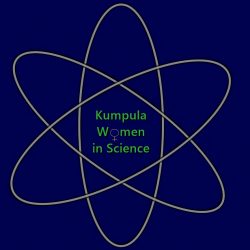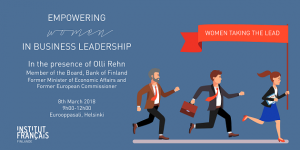The recent discussion on sexual harassment and the #metoo campaign have raised increased awareness of harassment and its manifestations. However, there is little information about harassment in Academia. Thus, the Helsinki Association for Women Researchers (https://blogs.helsinki.fi/tutkijanaiset/ ) decided to conduct an inquiry about sexual harassment at Finnish universities.
By March 15th, a total of 437 people, of which 79% women and 18% men, answered the inquiry. The answers came mostly from the University of Helsinki but also from Aalto University, the University of Art and from other universities in Finland. The respondents were both staff and students.
Although all the universities have zero tolerance policies, about half of the women and one-third of the men answering the inquiry had been victims of sexual harassment. In the Kumpula Faculty of Science, the numbers are 40% for women and 20% for men (totally 70 people: 70% women and 30% men). In addition, many of those who had not experienced harassment themselves had witnessed cases of harassment. The experiences included measuring bodies in sexual manner, telling suggestive jokes, sending sexually-oriented photos, proposing sex, promising grades or academic progress against sex, illicit touching, kissing by force, and even rape.
Only 12 percent of the female victims and 1 person among the male victims reported the harassment along official channels. Some more discussed the events with their colleagues, friends or families. But most of the victims did not share their experiences with anyone. The darkest experiences of all where those where the victims did report their experiences to their superiors – but nothing was done. More information about the numbers gathered in the inquiry is found here: https://blogs.helsinki.fi/tutkijanaiset/files/2018/03/tilastojastatistics.pdf .
Young women were particularly vulnerable. The offenders were often their supervisors or people who were in the position of power over them. Many of the victims, shocked by their experiences, were not sure if they were harassed or not. And even if they recognized the harassment, they often did not want to report the cases since they were afraid for their career or their reputation. And even if they were willing to react, they did not necessary know what to do or whom to contact. And even if they reacted, their reports were all too often ignored. Men also described cases of harassment, the most typical cases being unwanted touching and unwanted suggestions for sex.
Two themes recurred in the replies: shame and guilt. The victims often blamed themselves and wondered what they had done wrong. In addition, humiliation, insecurity and the feeling of lack of control in one’s own life were common reactions. Experiences of not being trusted or taken seriously increased the feelings of shame and guilt. The responses revealed that the experiences of harassment could have traumatic impact on people’s lives for years.
The recent open and active discussion about sexual harassment in various forms of media has had a positive effect: several contributors, in discussing their experience, indicated that nowadays they would have reacted differently. Many of the respondents agree that Academia can fight sexual harassment by discussing it openly and by inventing methods to immediately identify and react to harassment. Low threshold reporting channels are also found to be very important in the survey. In general, continuous and active information dissemination and prevention of misconduct are seen to be the key to erasing sexual harassment from universities.
To conclude, a couple of words of advice: Every one of us has the right to feel safe and respected in our place of work or study. So, act when you even suspect sexual harassment. Tell the malefactor to stop. If you dare not, or if the person does not stop, or if the case is serious: report to your official supervisor or your supervisor’s supervisor. They have the legal responsibility to react to the cases of harassment. There are also specific harassment contact persons both at universities and student unions.


